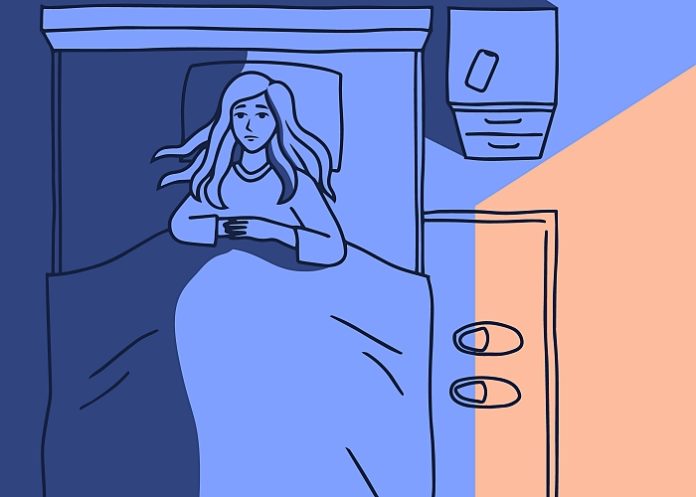A healthy sleep pattern is associated with lower risks of atrial fibrillation (AF) and bradyarrhythmia, independent of traditional risk factors — although genetic risk factors for rhythm problems appeared to lessen the association — found a large observational study in the Journal of the American College of Cardiology.
People who self-reported the best sleep characteristics had a 29% lower risk of developing atrial fibrillation or flutter and a 35% lower risk of bradyarrhythmia compared with those with the worst sleep patterns in terms of being a night owl, sleeping too little, snoring, and having insomnia or daytime drowsiness.
The risk for ventricular arrhythmias didn't persist after adjustment for demographic, lifestyle, and genetic risk factors, noted Dr Lu Qi of the Tulane University School of Public Health and Tropical Medicine in New Orleans, and colleagues
Along with prior studies linking a healthy sleep pattern to reduced risks of cardiovascular diseases and heart failure, the findings “emphasise the importance of improving the overall sleep behaviours in the prevention of cardiovascular disease at an early stage among the high-risk populations”, the researchers wrote.
As a potentially reversible factor, the findings “lend support to potential interventions targeting the improvement of multiple sleep behaviours in the prevention of arrhythmias and cardiovascular disease risk in general,” they added.
“However, rest assured, we must not yet lose sleep over their findings,” cautioned Dr Alan Kadish and Dr Jason Jacobson, both of New York Medical College in Valhalla.
Their editorial accompanying the paper drew attention to a number of limitations that make the results preliminary and hypothesis generating rather than actionable in the clinic, writes MedPage Today.
Despite the “relatively sophisticated approach to the analysis of sleep” in the study, “a major limitation is that arrhythmia diagnoses were obtained from diagnostic codes”. And diagnosis of arrhythmias like those looked at in the study were subject to wide variability in clinical settings, they wrote.
“It would have been much more helpful to know the type and duration of AF; the extent, timing, and significance of BA [bradyarrhythmia]; and the type of VA [ventricular arrhythmia].”
Also, it's not a given that preventing these arrhythmias will also prevent cardiovascular disease generally, they added. “Not all arrhythmias have the same significance, and many are the consequence (not cause) of cardiovascular disease,” they wrote. “Alternatively, sleep disorders and arrhythmias may both simply be indicators of declining health overall and not causally linked.”
Of interest, the editorialists said, was that genetic predisposition to atrial fibrillation significantly modified the associations, such that sleep pattern mattered more in those with less genetic risk. Combined, good self-reported sleep and low genetic risk presented a 46% lower risk of atrial fibrillation than a poor sleep pattern plus high genetic risk.
Among the 403,187 participants in the UK Biobank database without baseline arrhythmias, the 42% with at least four of the five versus none of the good sleep characteristics (chronotype, sleep duration, insomnia, snoring, and daytime sleepiness) had hazard ratios of: 0.71, 95% CI 0.64-0.80 for atrial fibrillation or flutter 0.65, 95% CI 0.54-0.77 for bradyarrhythmia 0.94, 95% CI 0.69-1.28 for ventricular arrhythmias:
Progressively poorer sleep health scores were associated with higher incidences of atrial fibrillation and bradyarrhythmias.
Among the individual components of the sleep pattern, sleeping seven to eight hours per day, infrequent or no insomnia, and no frequent daytime sleepiness were each independently associated with lower arrhythmia risk. The associations held fairly steady across subgroups by age, sex, BMI category, smoking and drinking status, and physical activity.
Study details
Healthy Sleep Patterns and Risk of Incident Arrhythmias
Xiang Li, Tao Zhou, Hao Ma, Tao Huang, Xiang Gao, JoAnn E. Manson, Lu Qi
Published in Journal of the American College of Cardiology, Volume 78, No 12, September 2021
Abstract
Background
Emerging evidence has linked sleep behaviours with the risk of cardiac arrhythmias. The various sleep behaviours are typically correlated; however, most of the previous studies only focused on the individual sleep behaviour, without considering the overall sleep patterns.
Objectives
The purpose of this study was to prospectively investigate the associations between a healthy sleep pattern with the risks of cardiac arrhythmias.
Methods
A total of 403,187 participants from UK Biobank were included. A healthy sleep pattern was defined by chronotype, sleep duration, insomnia, snoring, and daytime sleepiness. Weighted genetic risk score for atrial fibrillation was calculated.
Results
The healthy sleep pattern was significantly associated with lower risks of atrial fibrillation/flutter (AF) (HR comparing extreme categories: 0.71; 95% CI: 0.64-0.80) and bradyarrhythmia (HR: 0.65; 95% CI: 0.54-0.77), but not ventricular arrhythmias, after adjustment for demographic, lifestyle, and genetic risk factors. Compared with individuals with a healthy sleep score of 0-1 (poor sleep group), those with a healthy sleep score of 5 had a 29% and 35% lower risk of developing AF and bradyarrhythmia, respectively. Additionally, the genetic predisposition to AF significantly modified the association of the healthy sleep pattern with the risk of AF (P interaction = 0.017). The inverse association of the healthy sleep pattern with the risk of AF was stronger among those with a lower genetic risk of AF.
Conclusions
Our results indicate that a healthy sleep pattern is associated with lower risks of AF and bradyarrhythmia, independent of traditional risk factors, and the association with AF is modified by genetic susceptibility.
Medpage Today article – Not Catching Enough Z's Linked to Cardiac Arrhythmia (Open access)
JACC article – Healthy Sleep Patterns and Risk of Incident Arrhythmias (Open access)
See more from MedicalBrief archives:
Too little or too much sleep bad for heart health
Most AF triggers are easily modifiable lifestyle choices
Sleep duration's effect on elevated heart risk — ACC:2021

